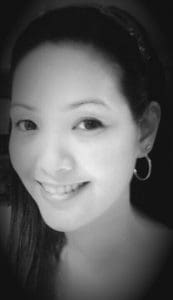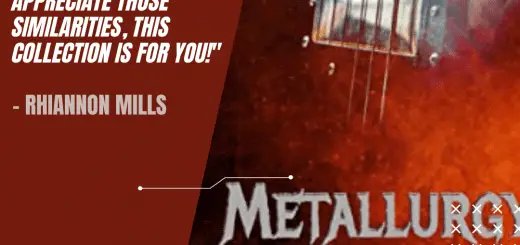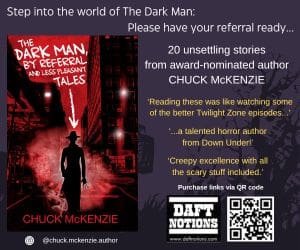5 Famous Authors with Bipolar Disorder
 5 Famous Authors with Bipolar Disorder
5 Famous Authors with Bipolar Disorder
Did you know that a large portion of the author population claims to suffer from a mental illness or mood disorder? Some even say that it’s impossible to be successful as a horror writer without a slight mental deviance. So, is mental health somehow tied to literary prowess? These five famous authors with bipolar disorder suggest the answer is yes.
5 famous bipolar authors
Scientists are still trying to figure out what exactly causes BD. Because bipolar disorder often involves “episodes,” many authors use their intermittent battles as inspiration for amazing literature. No genre has been untouched by this phenomenon, in fact. Here are five famous authors to prove that:
#1. Robert Munsch
This children’s book writer is known for making it onto the Publisher’s Weekly All-Time Best-Sellers list back in 2001. His award-winning book, “Love You Forever,” was inspired by his lifelong struggle with bipolar disorder, substance abuse, and trauma. By 2008, Munch retired from the biz after a stroke, but he still continues to publish new versions of old books to this day.
#2. Mark Vonnegut
As Kurt Vonnegut’s son, Mark Vonnegut had some pretty big shoes to fill. His famous father wrote “The Slaughterhouse Five” as a way to cope with his own psychiatric conditions. Later, mark would follow in those footsteps by painting, playing music, and writing to feel better. Mark’s best works include “The Eden Express” and “Just Like Someone Without Mental Illness Only More So” – both of which serve as memoirs on his fight with mental health.
#3. Alan Garner
This famous bipolar author uses his mental illness to reconsider the creative parameters of traditional British folk tales. As the writer of “The Owl Service” and “The Moon of Gomrath,” he admittedly pulled from his depression diagnosis to illustrate how the average person’s battle can dictate the quality of their lives – with supernatural looks at their impact on the past and future.
#4. Marya Hornbacher
Ms. M.H. was born and raised in the heart of America and began her authorship adventure as a freelance journalist. Not apologizing for her mental health condition one iota, she penned an intimate memoir called “Madness: A Bipolar Life” back in 2008. It went on to get nominated for the Pulitzer Prize, and it also inspired her later works on eating disorders and coping mechanisms.
#5. Kay R. Jamison
Dr. KRJ just so happens to be a clinical psychologist who also became an author in 1995. Her gripping memoir called “An Unquiet Mind” is raw, honest, and real. It outlines her personal battle with bipolar disorder and showcases her professional experiences as well. Her insights are so hard-hitting that can they actually be used as inspiration for character development and plot conceptualization.
If you can relate to any of these five famous authors with bipolar disorder, then you’re already one step ahead of the game. Your mental health does not have to define what’s possible in your life or your storylines. Plus, there are multiple treatment options available, and you even can go to Mind Diagnostics to take a test at home.
How to use bipolar disorder as inspiration for writing
Bipolar disorder is a chronic condition that’s commonly associated with sweeping mood swings or extreme highs and lows. It may involve hyperactivity, lack of motivation, insomnia, and even suicidal ideation. The disorder can persist for months or years and is ideally treated with a combination of psychotherapies and medications. It’s also relatively ordinary, with about 3 million new cases each year.
Contact a licensed clinical therapist if you experience any of the symptoms of bipolar disorder or if your at-home test comes back positive. This is especially important if your symptoms become disruptive to your life or creative capacities. Meanwhile, channel the side effects into amazing works with these three techniques:
Step One: Observe its effects on your everyday life.
Look at what being bipolar does to your lifestyle, social options, and professional opportunities. Imagine various scenarios and/or alternatives to those situations. Then, write a compelling story around the minute details, using your personal experiences as inspiration.
Step Two: Use the highs and lows to write great stuff.
Authors with bipolar disorder are lucky because they get insights on both sides of the human condition. Their journeys between the two poles can also serve as a muse for writing weaved plots, hidden messages, mysteries, and double-entendres.
Step Three: See how it affects others.
By looking at how your bipolar disorder affects the people around you, it’s easier to create complex characters and storylines because you understand the heart in a more intuitive way. So, pay attention to others, especially when you’re dealing with mood swings in front of them.
Integrate your knowledge about bipolar disorder into the plot to make it more believable and enthralling. And if you’re writing horror, this is the perfect chance to develop a character that’s less predictable.
The takeaway
Having bipolar disorder didn’t stop these five famous authors and it shouldn’t stop you either. Learn how they channeled their mental health problems into amazing literature that sold millions of copies worldwide.

About the author
Marie Miguel has been a writing and research expert for nearly a decade, covering a variety of health- related topics. Currently, she is contributing to the expansion and growth of a free online mental health resource with Mind-Diagnostics.org. With an interest and dedication to addressing stigmas associated with mental health, she continues to specifically target subjects related to anxiety and depression.
- About the Author
- Latest Posts
The Horror Tree is a resource for horror authors which was created in 2011. The main goal when starting the site was to include all of the latest horror anthologies and publishers that are taking paying submissions. A resource useful for both new and experienced publishers alike looking for an outlet for their written material!










